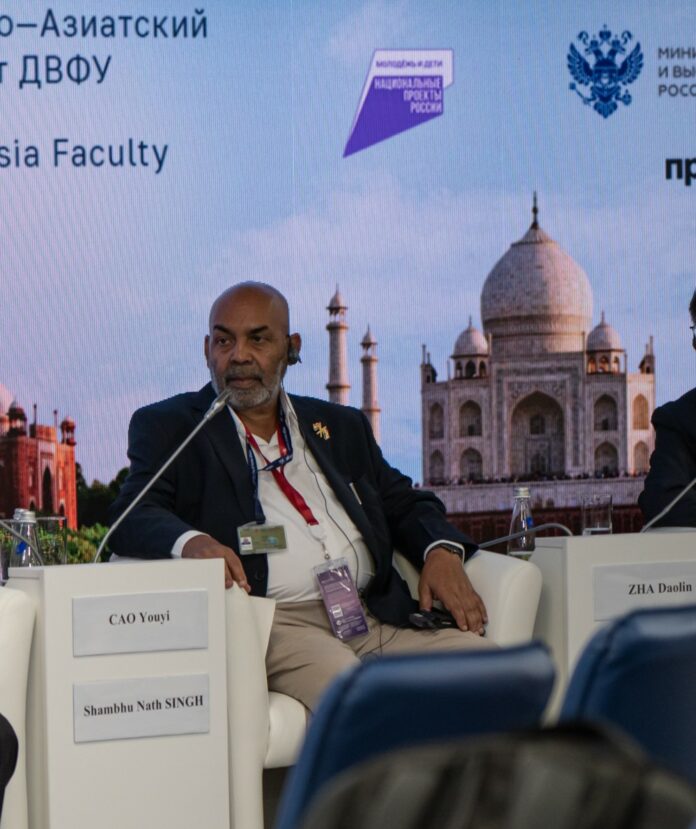Tezpur: The Eastern Economic Forum (EEF) 2025 held in Vladivostok during 03-06 September 2025 reaffirmed its status as one of the most significant international platforms for dialogue on global economic, academic, and strategic issues. The Forum witnessed the participation of Russian President Vladimir Putin, whose presence at the plenary session underscored both the importance of the event and its far-reaching influence on international cooperation.
Also Read: India Women’s Team Ready for ICC World Cup Challenge: Devajit Saikia
This year’s Forum brought together global leaders, policymakers, and heads of premier educational institutions from Thailand, China, Japan, Mongolia and many other academic leaders from the Asia Pacific region. It served as a vital platform for fostering partnerships, sharing perspectives, and shaping collective responses to pressing challenges in the Asia-Pacific and beyond.
Against this backdrop, Prof. Shambhu Nath Singh, Vice Chancellor of Tezpur University, addressed the inaugural session on the theme “World War II and the Human Spirit—Resilience, Unity, and Hope. Prof. Singh reflected on the immense human cost of the war, highlighted India’s decisive role in the battles of Kohima and Imphal, and paid tribute to Russia’s monumental sacrifices. He emphasized that the enduring spirit of resilience, unity, and hope must guide nations in addressing today’s global challenges.
Also Read: Assam Cabinet Forms SIT to Probe Anti-India Activities by Pakistani National
Prof. Singh also spoke at a dedicated session on “Sustainable Education.” He stressed that education must transcend boundaries and evolve as a shared responsibility of governments, academia, industries, and civil society. Highlighting Tezpur University’s initiatives to make education accessible and affordable, he cited the University’s outreach to students not only across India but also from Nepal, Bhutan, Sudan, Ethiopia, Turkmenistan, Mongolia to name a few.
Tezpur University’s participation at EEF 2025 demonstrates India’s deepening role in global educational diplomacy and reflects the University’s commitment to advancing academic and strategic collaboration in the Asia-Pacific region.

